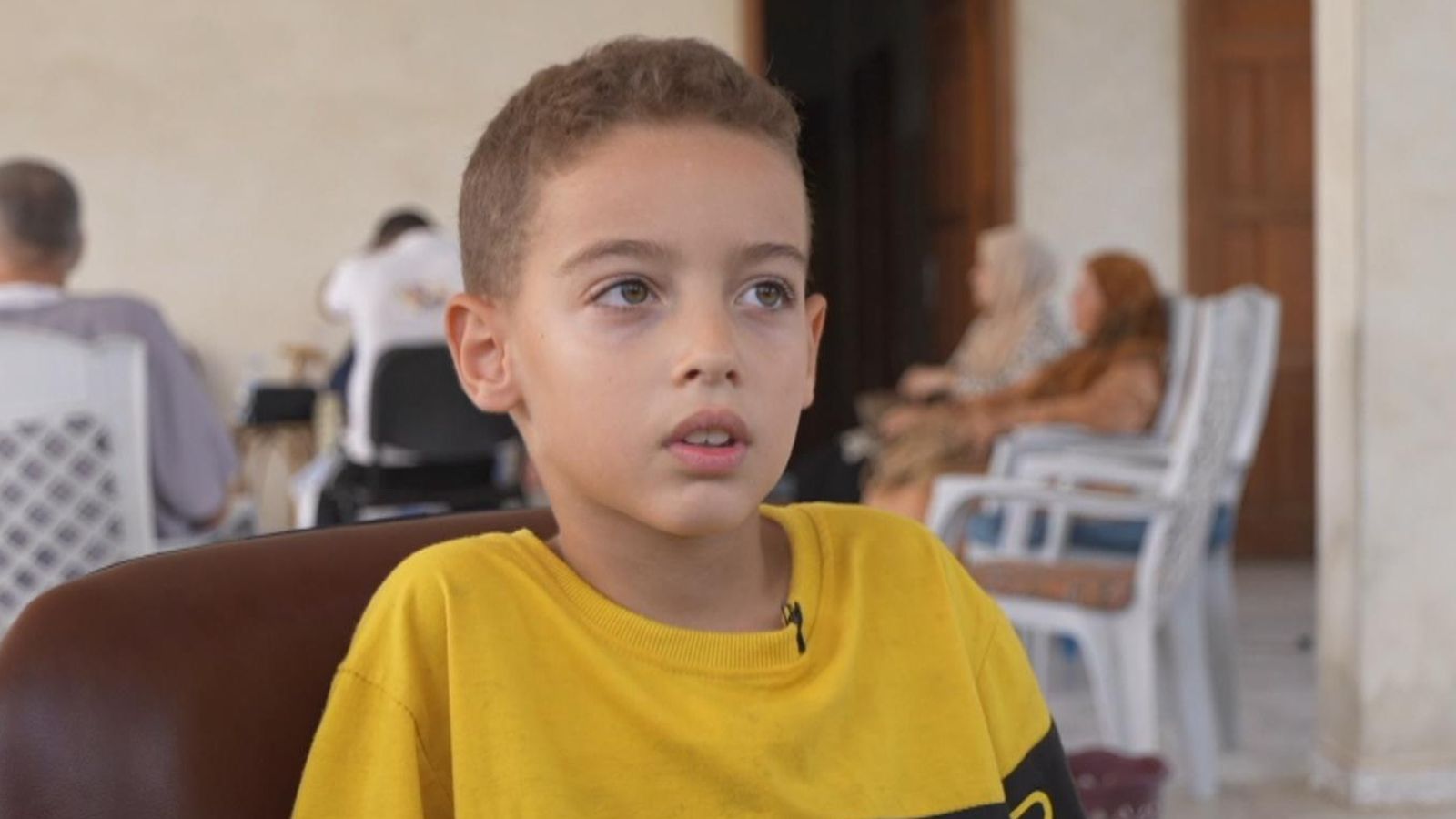A young boy from Ireland who became trapped in Gaza after Israel began its retaliatory strikes against Hamas has said he is desperate to get home.
Sami Alagha and his family travelled to the Palestinian city for an extended holiday, but it’s since become almost entirely cut off from the outside world.
“My life is in danger and I want to go back to Dublin,” he said.
The weekend’s arrival of aid trucks carrying food and medical supplies, via a crossing from Egypt, marks the first time the borders have been open since the Israeli offensive started earlier this month.
Children have been among the victims of the regular airstrikes, which came after a Hamas attack on 7 October that killed more than 1,400 people – also including children – in Israel.
Sami said he and his family were “hearing a lot of rockets and bombs coming from everywhere”.
“It’s very scary and I can’t sleep very well,” he added.
Number killed in Gaza rises
Gaza’s death toll on Sunday night stood at 4,651, with 14,245 injured, according to its health ministry.
Israel has repeatedly said its aim is solely to eradicate Hamas.
During a meeting with US President Joe Biden this week, Prime Minister Benjamin Netanyahu said his country’s military would “do everything it [could] to keep civilians out of harm’s way”.
Israeli Defence Forces have urged residents of Gaza City to flee south ahead of an expected ground offensive, though one expert told Sky News those who remain should still be protected by international humanitarian law.
Please use Chrome browser for a more accessible video player
‘Everyone needs to help the children’
Sami said his family and others trapped in Gaza were making do without much electricity or water.
He said he was missing his home, friends, toys, and his father’s car.
“It’s so safe,” he said of Dublin, adding: “Everyone needs to help the children in Gaza.”
Be the first to get Breaking News
Install the Sky News app for free
It comes as the UN called for the continued arrival of aid, saying the weekend’s convoys – including 14 trucks of supplies on Sunday – barely scratched the surface of what’s required.
Martin Griffiths, the UN’s emergency relief coordinator, said: “They need more, much more.”








